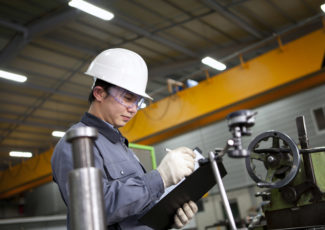Summer Camps Aimed at Future Manufacturing Employees
By Teri Cettina
June 21, 2016
Community colleges host youth summer camps, sponsored by the Fabricators & Manufacturers Association, in the hopes of recruiting future manufacturing employees.
Community colleges train a sizable percentage of this country’s manufacturing workforce — and on some campuses, instruction is beginning at an earlier age.
This summer, more than 1,000 middle and high school students throughout the country will gather on community college campuses to learn how to build their own electric guitars, create custom-made clocks, investigate the world of robotics and much more.
Sponsored by Nuts, Bolts & Thingamajigs (NBT), the foundation of the Fabricators & Manufacturers Association, International (FMA), the goal of the camps is to interest young people (ages 12-16) in the field of manufacturing and fabrication.
“Holding camps at community colleges — and sometimes technical colleges or trade schools — makes perfect sense,” says Ed Youdell, FMA president and CEO. “Many of the colleges already have state-of-the-art manufacturing labs from which the kids can learn, and [the colleges] are well connected to their local manufacturing community.”
The FMA also hopes the camps will show students and their parents that the manufacturing and fabrication industry “is not filled with boring factory work, as they might mistakenly imagine,” Youdell adds. “Careers in our field are extremely high-tech. They involve computer-aided design (CAD), programming and much more sophisticated skills than ever before.”
How the camps are funded and run
Most students pay a modest fee (up to $99) to attend a manufacturing camp, but the FMA’s foundation also provides scholarships.
Community college administrators or faculty interested in hosting a summer camp apply each fall to the FMA for grant funding. Colleges typically also appeal to business partners for funding support.
The FMA’s foundation provides community colleges with an established camp curriculum, but community college faculty members staff the camps and can “tweak” the content to match their own program strengths, Youdell says.
Each college chooses the project for its camp — from 3D printing to racing radio-controlled cars. In addition, camp hosts often take campers on tours of local manufacturing and fabrication facilities.
Meeting the industry’s need
As community college leaders know, the manufacturing and fabrication field faces a serious worker shortage. “We are losing baby boomer employees to retirement every day, and most of our industry’s current workers are now in their early 50s,” Youdell says. “Our foundation’s goal with these summer camps is to create a strong pipeline of future workers.”
According to a 2015 study by Deloitte and The Manufacturing Institute, 60 percent of manufacturing-related jobs are currently vacant due to a severe talent shortage. In addition, the study estimates that approximately 3.4 million manufacturing jobs will be available over the next decade due to retirements and to economic expansion. However, up to 2 million of these positions will remain unfilled unless additional workers are recruited into the industry, according to the report.
The FMA’s foundation hopes to do its part by expanding its summer camps from the current 41 to 100 or more. “If we can get kids’ attention in middle school, we have a much better chance of recruiting them into our industry later,” Youdell says.
For more information about hosting a camp on your community college campus, contact the FMA.






